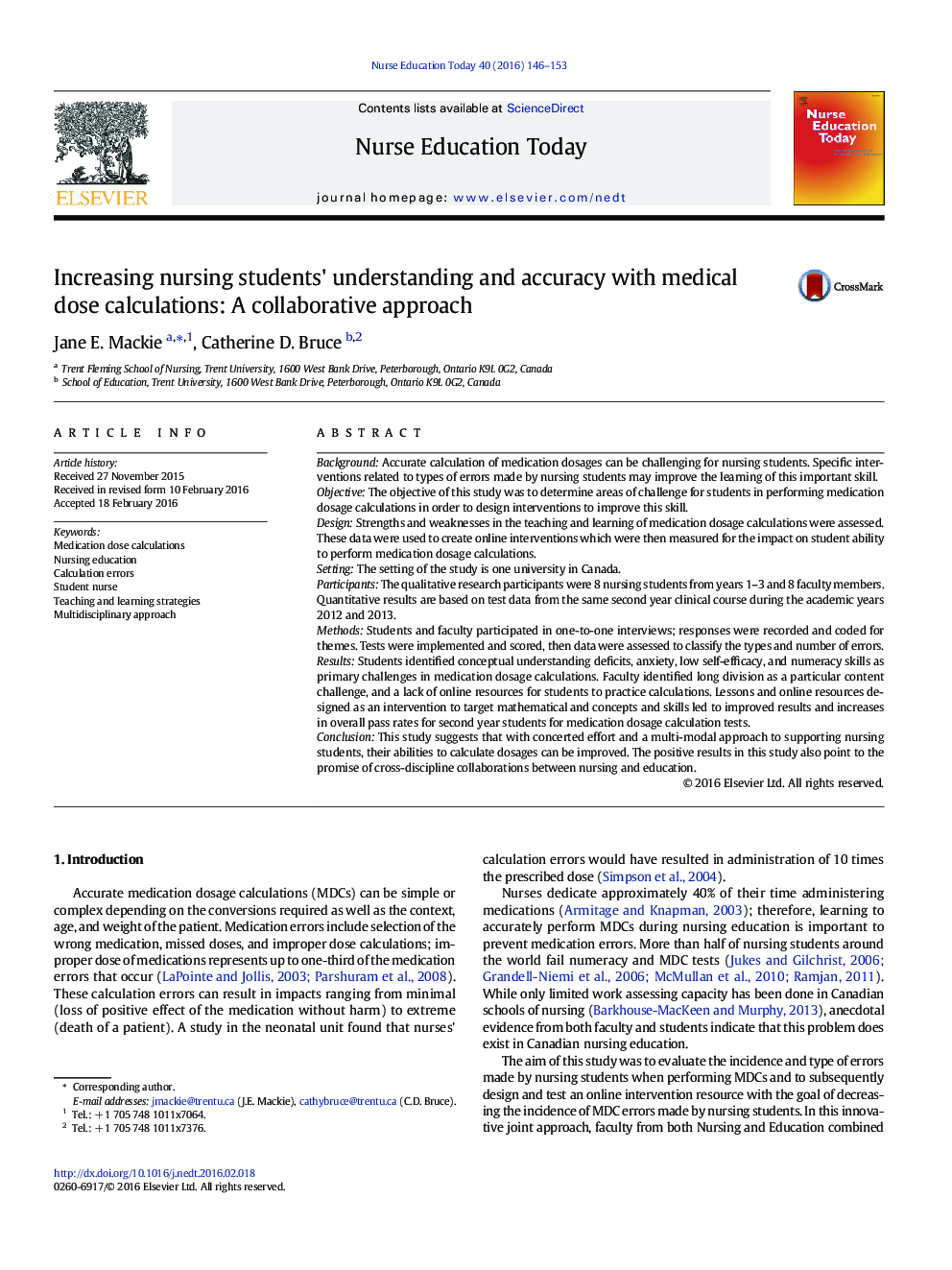| Article ID | Journal | Published Year | Pages | File Type |
|---|---|---|---|---|
| 367863 | Nurse Education Today | 2016 | 8 Pages |
•Faculty in Nursing and Education at Trent University assessed teaching practices around medication dose calculations•Qualitative data was obtained from faculty and students about teaching practices for medication dose calculations•Quantitative data was obtained from analysis of medication dose calculation tests to determine common types of errors•Areas of weakness were identified using both types of data in order to develop specific resources to support learning•Number of medication dose errors by nursing students were significantly reduced after implementation of those resources
BackgroundAccurate calculation of medication dosages can be challenging for nursing students. Specific interventions related to types of errors made by nursing students may improve the learning of this important skill.ObjectiveThe objective of this study was to determine areas of challenge for students in performing medication dosage calculations in order to design interventions to improve this skill.DesignStrengths and weaknesses in the teaching and learning of medication dosage calculations were assessed. These data were used to create online interventions which were then measured for the impact on student ability to perform medication dosage calculations.SettingThe setting of the study is one university in Canada.ParticipantsThe qualitative research participants were 8 nursing students from years 1–3 and 8 faculty members. Quantitative results are based on test data from the same second year clinical course during the academic years 2012 and 2013.MethodsStudents and faculty participated in one-to-one interviews; responses were recorded and coded for themes. Tests were implemented and scored, then data were assessed to classify the types and number of errors.ResultsStudents identified conceptual understanding deficits, anxiety, low self-efficacy, and numeracy skills as primary challenges in medication dosage calculations. Faculty identified long division as a particular content challenge, and a lack of online resources for students to practice calculations. Lessons and online resources designed as an intervention to target mathematical and concepts and skills led to improved results and increases in overall pass rates for second year students for medication dosage calculation tests.ConclusionThis study suggests that with concerted effort and a multi-modal approach to supporting nursing students, their abilities to calculate dosages can be improved. The positive results in this study also point to the promise of cross-discipline collaborations between nursing and education.
